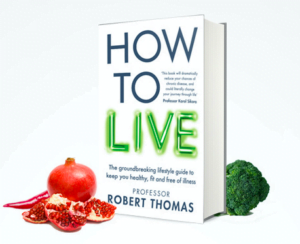Erectile function

Some medications are associated with erectile dysfunction including hormones for prostate cancer, finasteride, beta blockers and even tamsulosin. It would be worth discussing, with your doctor, whether there are alternatives. In the first instance, investigating and managing risk factors for heart disease with lifestyle is important but of course if these measures fail medical interventions may be necessary.
General advice for erectile function
In addition, to following the medical interventions recommended by your doctor, try to concentrate on the follow lifestyle issues, if relevant to you:
-
- Smoking – tips to quit
- Obesity – help with weight loss
- Sedentary behaviour – How to enjoy more exercise
- Diabetes (type 2) – help lower blood sugar
- Hypertension – lower BP naturally
- High Cholesterol – tips to avoiding statins
Specific advice for erectile function:
In addition, to the general healthy living advice highlighted in these links following measures are worth special attention:
Exercise:
As well as introduction a programme of resistance and aerobic exercise at least three times a week, specifically adding regular pelvic floor exercises are useful. These directly stimulate the muscles and blood supply around the base of the penis. If performed correctly these can be a great help. The problem is that most people give them up after a few days or are very sporadic with them. They need to be performed correctly for at least 10 minutes a day on a long-term, ongoing basis. Even then, an improvement only usually starts appearing after six to eight weeks – it is important to keep going.
More veg less meat:
A large cohort study published in JAMA October 2020 evaluated 21 469 men in the prestigious Health Professionals Follow-up Study. Scientist convincingly found that diets quality which emphasised the consumption of vegetables, fruits, nuts, legumes, and fish or other sources of long-chain (n-3) fats, as well as avoidance of red and processed meats, was found to be associated with a lower risk of developing erectile dysfunction.
Improve gut health
The contribution of our microbiome (profile of bacteria in our gut and skin) has been often over looked in recent years. Poor gut health (too many “bad” bacteria) leads to gut wall inflammation associated with bloating, intermittent constipation, diarrhoea and excess wide which can be embarrassing and contribute to performance related anxiety. Together with poor mood, lower motivation these gut health related factors have a considerable impact on libido. In the long term poor gut is associated with an increased risk of many of the associated chronic diseases listed above. Its really important to consider dietary and lifestyle advice, including a role for a good quality probiotic supplement – tips to improve gut health
 Medical interventions:
Medical interventions:
In men, medication such as PDE5 inhibitors, Viagra and Cialis can help achieve a satisfactory erection. They also aid performance-anxiety related ED because once a man has the reassurance that he can get an erection with medication, just the thought of this backup option is often enough to help. Partial erections or erections which are not sustained are usually restored to normal after these tablets, but for those unable to get an erection at all, tablets are often less effective. Some surgeons recommend taking them every day (whether you are having sex or not) for a month, as this seems to help in the longer term. If these drugs do not work or aren’t appropriate, it is worth asking for a referral to a specialist urologist or nurse who may be able to offer a number of other interventions ranging from penile pumps to intra-penile injections – some of these work well so don’t be put off by the stigma.
Hormone replacement therapy (HRT):
A fall in testosterone levels are normal in men as they get older. The male menopause , is real but is not as obvious as with women. If these drop in testosterone is greater than normal it can lead to erectile dysfunction, loss of libido, poor motivation, depression and even an increased risk of prostate cancer. If you have these symptoms, it is certainly worth asking your doctor for a blood test and if low consider hormone replacement.
Counselling:
Several RCTs have evaluated the benefits of the two main types of counselling. Supportive counselling, typically delivered to individual patients, aims to help patients deal with diagnosis and treatment and improve self-confidence and body image. Sexual counselling can be delivered to couples and involve encouraging them to discuss their ideas for a mutually satisfying sex life. Both these techniques have demonstrated some improvement of sexual function, especially if combined with other lifestyle manoeuvres.

